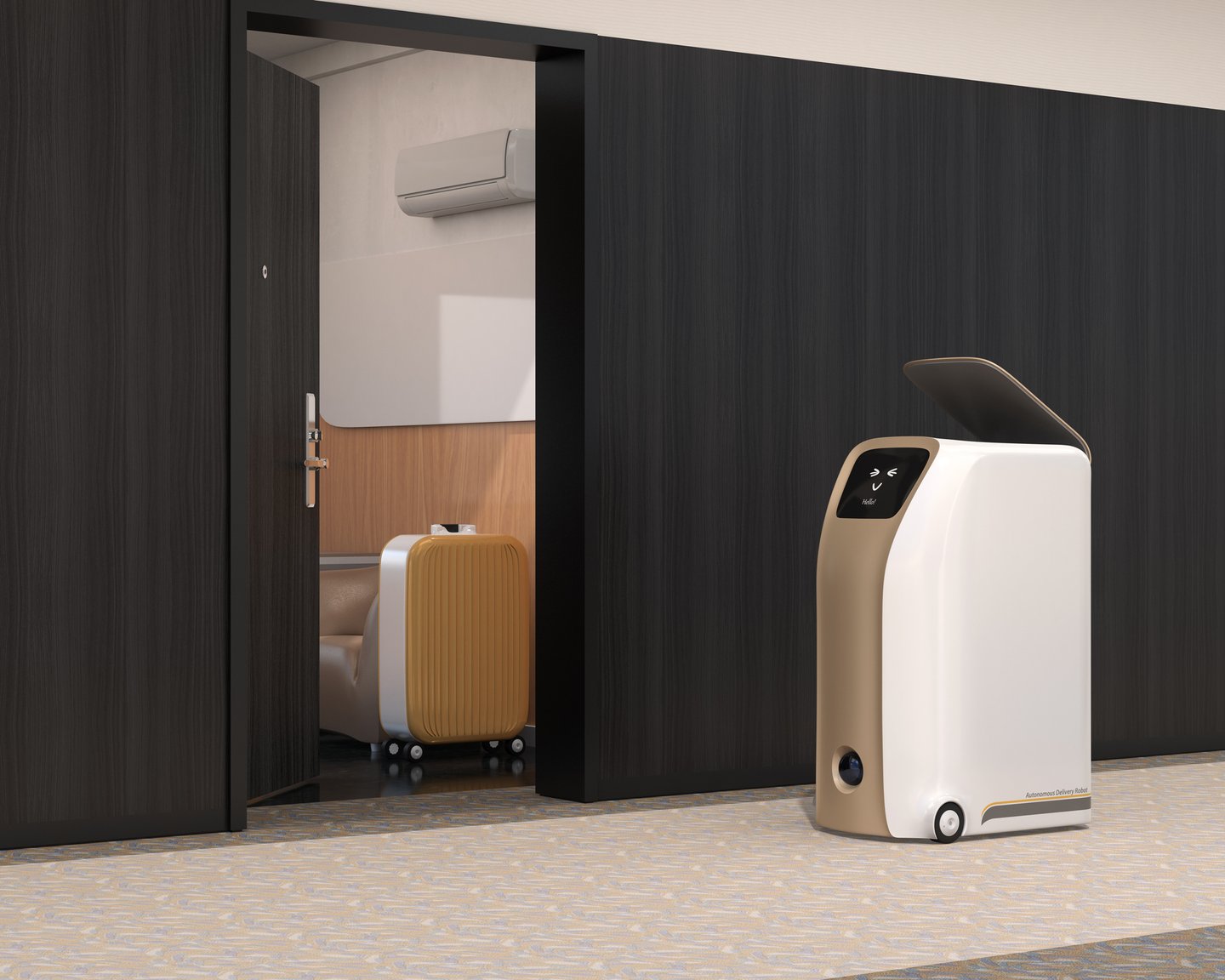5 Hotel Technology Trends Accelerated by the Pandemic
Resilient by nature, hotels have overcome monumental events such as natural disasters, terrorist attacks, and financial meltdowns. Rebounding from these tragedies has made hoteliers adapt, improve, and deliver the way they serve guests and run their operations. While that same resilience will be seen during the post-pandemic era, this rebound will be accelerated with the help of many new technologies purpose-built for hotels.
Let’s look at a few of these technology trends that promise to be part of the new normal in hospitality.
1. Touchless Tech
Hotels need to adhere to strict social distancing and new cleaning protocols to help make guests feel safe and comply with local health guidelines. A key part of this goal is to eliminate common hotel touchpoints, both staff-facing and guest-facing, without sacrificing the “high touch” service model.
To this effect, some hotels have adopted robots to clean hallways and deliver requested items such as towels or shampoo. This helps the limited and oftentimes overstretched staff by having extra “tech hands” to help fulfill some guest requests. It also eliminates unnecessary face-to-face contact during this pandemic. Furthermore, robots can clean additional times without having to add cleaning cycles to the housekeeping staff.
Through voice and AI-powered devices and in-room assistants, guests can avoid touching certain items inside the hotel room, such as thermostats, clocks, phones, and lights. With most hotels operating with less staff on property, a hands-free digital team member that works around the clock is a welcome addition.
2. Mobile First Experience
Playing right into the safe and clean environment that hotels are creating is the importance of delivering a mobile-first and digital experience.
If a service or amenity can be digitized, allowing guests complete autonomy over their experience while providing high-touch service without the physical touch, hoteliers are embracing it.
Hotels are now in a prime position to leverage the power of personal devices and mobile apps that allow their staff to service guest requests. From the initial booking to check-in, mobile technologies enable guests to perform almost any action from their mobile device, including concierge services, room entry, restaurant ordering, menus, and payments. This represents an important shift, as the online experience is often considered of equal importance to the offline experience, and can even present incremental revenue opportunities for properties. Mobile technology is more a part of our lives than ever before, and the guest experience should be no exception.
3. Fast (and Reliable) Internet
Right now, hoteliers are pulling out all the stops to attract potential guests and maximize occupancy. In many cases, hotels are reimaging available space to cater not only to overnight guests but also guests who are seeking daytime use amenities. This may include offering rooms as temporary offices for those that want to work away from the distractions of home. There has even been an uptick in room bookings based on hurricanes and wildfires.
With an influx of guests that need to work and live from their hotel rooms, hoteliers have a responsibility to provide reliable high-speed internet access to their guests. At the same time, reducing costs and finding new sources of revenue are critical. Hoteliers are turning to solutions that elevate the guest experience and simplify the management and support of a property's high-speed internet access (HSIA) and visitor-based network (VBN) needs. These offerings handle everything, including load balancing, authentication methods, multiple levels of tiered access, security, compliance, scheduling, and reporting.
4. Cloud-Based PBX Telephones
As hotels adjust to low occupancy rates and look to protect their bottom line, technology that helps accelerate cost-savings has become especially paramount. After all, one of the most expensive devices in a hotel room is the telephone with all of the included services that few guests ever use.
With this in mind, it’s no surprise that hotels are now shifting away from traditional phones to embrace cloud-based PBX telephones that are less expensive, easier to use, and still meet federal emergency 911 guidelines. Combining the functionalities of telephony and Wi-Fi-based services provides a range of benefits for hoteliers, including a significant reduction in hardware and maintenance costs that are frequently attributed to legacy analog systems. Hoteliers can also reclaim valuable space that analog servers typically take up in a property's server room while offering their guests a better experience.
5. TV Casting
In keeping with the prominent theme of a touchless, frictionless guest experience, traditional high-touch, in-room fixtures must be reimagined to satisfy pandemic protocols and ensure the safety of guests. In the last few months, reports have revealed that the classic TV remote is one of the most problematic guest room items from a cleanliness and sanitation perspective.
TV casting has emerged as a go-to solution for in-room guest entertainment. Rather than relying on a remote and manually typing in usernames and passwords for each streaming service, guests can cast their favorite content right from their personal devices.
In the wake of the coronavirus pandemic, technological adoption across the hospitality landscape is more urgent than it has ever been. Without forgetting the bottom line, the safety and experience of guests should be the paramount consideration when vetting and implementing new technology, and these trends are positioned to guide the hospitality industry into a successful, fast-changing future.
David Millili, CEO of Angie Hospitality
David Millili is the CEO of Angie Hospitality, developer of the industry's first 24-hour interactive guest room assistant, room control, PBX/telephony, TV, mobile app, and Wi-Fi solution, created just for hotels. David leverages his more than 25 years of experience scaling technology businesses globally in the hospitality and travel industries to enable hoteliers to offer their guests a truly connected experience while augmenting their contactless and touchless solutions.


